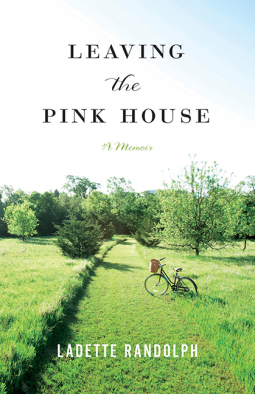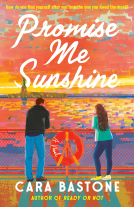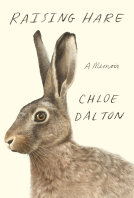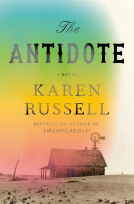
Leaving the Pink House
by Ladette Randolph
This title was previously available on NetGalley and is now archived.
Send NetGalley books directly to your Kindle or Kindle app
1
To read on a Kindle or Kindle app, please add kindle@netgalley.com as an approved email address to receive files in your Amazon account. Click here for step-by-step instructions.
2
Also find your Kindle email address within your Amazon account, and enter it here.
Pub Date Sep 01 2014 | Archive Date Jun 11 2015
University of Iowa Press | University Of Iowa Press
Description
On September 12, 2001, Randolph and her husband bought a dilapidated farmhouse on twenty acres outside Lincoln, Nebraska, and set about gutting and rebuilding the house themselves. They had nine months to complete the work. The project, undertaken at a time of national unrest and uncertainty, led Randolph to reflect on the houses of her past and the stages of her life that played out in each, both painful and joyful. As the couple struggles to bring the dilapidated house back to life, Randolph simultaneously traces the contours of a life deeply shaped by the Nebraska plains, where her family has lived for generations, and how those roots helped her find the strength to overcome devastating losses as a young adult. Weaving together strands of departures and arrivals, new houses and deep roots, cycles of change and the cycles of the seasons, Leaving the Pink House is a richly layered and compelling memoir of the meaning of home and family, and how they can never really leave us, even if we leave them.
Advance Praise
“Like most ordinary lives, Ladette Randolph's has been secretly extraordinary—odd, difficult, beautiful, in its understated way heroic. Set in my home state, Leaving the Pink House is a deeply evocative and clear-eyed depiction of a quintessentially American search for home that reminds me of both Willa Cather and Alexander Payne, of why I love Nebraska and why I left.”—Kurt Andersen, author, True Believers
“Ladette Randolph gets right to the heart of our primal fascination with houses, with heritage, and with the ever shifting definitions of home. I can't decide which I'm more in love with; the soul comforts of the pink house, the unwieldy romance of the country house, or all the magical and maddening places that came before them. This book charmed me and moved me—and, I daresay, made me want to move.”—Meghan Daum, author, Life Would Be Perfect If I Lived in That House
“Like the best memoirs, Leaving the Pink House is not one story but many. It’s a meditation on love and marriage; an elegy for lost things, including houses and faith; a meditation on risk and gratitude; and, finally, a paean to the landscape and people of Ladette Randolph’s native Nebraska.”—Jennifer Brice, author, Unlearning to Fly
Available Editions
| EDITION | Paperback |
| ISBN | 9781609382742 |
| PRICE | $18.00 (USD) |
Links
Average rating from 25 members
Featured Reviews
 Catherine B, Reviewer
Catherine B, Reviewer
Ladette Randolph writes about the stressful process of renovating a decrepit farmhouse with her husband. Interspersed throughout the story are memoir chapters, categorized by the other homes she lived in throughout her life – mostly in small Nebraska towns, as her family made frequent moves to accommodate her father’s career changes. The book continues into her adult life, telling an interesting story with stellar writing. She’s an editor as well as a writer, and it shows.
 Christine L, Educator
Christine L, Educator
I enjoyed "Leaving the Pink House", especially since we are d.i.y. people ourselves! Wondering if the house would be finished in time for the inspection was a little nerve wracking. I also enjoyed reading about the previous homes the author had lived in, as I never moved as a child, instead, grew up in the same house for 21 years.
 Susan D, Reviewer
Susan D, Reviewer
In her memoir of leaving a beloved house for a total fixer-upper in the country outside Lincoln, Nebraska, Ladette Randolph provides a memoir of her life, grounding it in the houses she has called home over the years. This story covers her childhood, living in various homes with parents and grand parents, moving to places loved and despised, a childhood and young adult life where fundamental Christian religion figured prominently and shaped her life well into adulthood.
The present situation, actually making the decision "to leave the pink house", is made in the wake of September 11th, with the weight of an almost apocalyptic change feeling overhead. "I best understand my life through the houses where I've lived", the author states early on and she then explains her life, her family, her forbears in terms of those houses. This new house is to be the next stage in her life.
While we follow the rough course of remaking this country house, we also follow Randolph through her very early years, on to her pre-teen and teen-age years, her avid adoption of the church to which her family belonged and where her father was, for a time a pastor. We see her first brief marriage to a young man who died too early. A second marriage that ends in bitterness and pain. But now she has a new life - a fully new life with her husband Noel, who is in this venture with her. Her children are essentially grown. She can take us back to view her journey.
While living in the house at the top of the hill, I began to see there were two worlds, what was inside my head and what was outside. The things inside were secret things - night dreams and thoughts, ideas, and daydreams with imaginary people and places; outside was everything else. (loc 377)
And a mention of her reading in an old library, "no larger than our dining room":
I liked it best in winter when the heady smell of the propane used to heat the room mingled with the smell of dusty shelves and old books. This smell, combined with my excitement in the presence of so many books,
created a kind of altered state....
Once I'd exhausted all the Nancy Drew mysteries, I turned to what I came to think of as the suffering animal stories: Black Beauty, Savage Sam, Old Yeller,
and many others of that ilk. (loc 854-859)
Another quote from the author:
As a fifth-generation Nebraskan, I too have inherited these stories. I have few models other than suffering stoically, and I must always question the role such attitudes play in putting up too long with bad situations. (loc 1228)
And finally a lesson that is brought home to the author and reader throughout this book, that home really is the people we love and the traditions we carry on. No matter what the difficulties along the way, if we are lucky to find the right people and places in our lives, eventually, we will find our home.
I do recommend this to those interested in memoirs, especially of a woman coming of age in the second half of the 20th century on the American Plains.
A copy of this book was provided by the publisher through NetGalley in return for an honest review.
Readers who liked this book also liked:
Jodi Picoult; Jennifer Finney Boylan
General Fiction (Adult), Literary Fiction, Women's Fiction


















